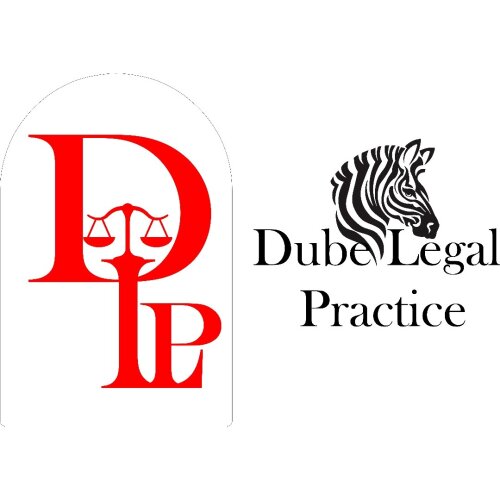Best Civil Rights Lawyers in Zimbabwe
Share your needs with us, get contacted by law firms.
Free. Takes 2 min.
Or refine your search by selecting a city:
List of the best lawyers in Zimbabwe
About Civil Rights Law in Zimbabwe
Civil rights law in Zimbabwe is an area of legal practice that addresses the enforcement and protection of citizens' fundamental rights and freedoms as outlined in the national constitution. These rights include freedom from discrimination, freedom of expression, the right to participate in public life, and the right to due process of law. Zimbabwe's Constitution, adopted in 2013, has provisions aimed at safeguarding these rights under Chapter 4, which is known as the Declaration of Rights. The government, through various legal instruments and the work of courts and commissions, is tasked with upholding these rights to ensure equal protection and opportunity for all citizens.
Why You May Need a Lawyer
People may require legal help in civil rights matters when they experience situations such as discrimination based on race, gender, religion, or disability. Issues may arise concerning the infringement of rights to free speech, assembly, or religion, as well as unfair treatment in settings such as employment, education, or housing. Legal representation can be crucial in navigating the complexities of the legal system, asserting one's rights, and obtaining remedies such as compensation, restitution, or policy changes. Lawyers can also assist with filing complaints, representing individuals in court or tribunals, and providing advocacy to ensure clients’ voices are heard and rights respected.
Local Laws Overview
Zimbabwe’s legal framework for civil rights is primarily based on the Constitution of Zimbabwe, particularly the Declaration of Rights. Key aspects include:
- Equality and Non-Discrimination: The Constitution guarantees equality before the law and prohibits discrimination based on attributes like race, gender, age, and disability.
- Freedom of Expression: Individuals have the right to freely express their opinions and ideas without unwarranted interference.
- Right to Education: The State must ensure access to education without discrimination.
- Right to Privacy: Protects personal information from undue invasion.
- Protection from Harassment: Ensures safety from political, physical, or emotional harassment.
In addition, the Zimbabwe Human Rights Commission plays a role in promoting, protecting, and ensuring the observance of human rights and freedoms.
Frequently Asked Questions
What constitutes a civil rights violation in Zimbabwe?
A civil rights violation occurs when an individual's rights and freedoms protected by the Zimbabwean Constitution or other laws are denied or infringed upon by state or non-state actors.
How can I file a complaint if my civil rights are violated?
Complaints can be filed with the Zimbabwe Human Rights Commission or through legal action in Zimbabwe's courts. It's advisable to consult with a civil rights lawyer to guide you through the process.
Are there legal protections against discrimination in employment?
Yes, the Constitution and labor laws in Zimbabwe prohibit discrimination in employment on grounds such as race, gender, or disability, ensuring fair treatment of workers.
What role does the Zimbabwe Human Rights Commission play?
The Commission investigates potential violations of human rights, promotes awareness, advises on policy reforms, and can act as a mediator in disputes involving civil rights.
Can I receive legal aid for a civil rights case?
Legal aid is available in certain cases, particularly for economically disadvantaged individuals. Various non-governmental organizations also provide assistance.
Is freedom of speech absolute in Zimbabwe?
No, freedom of speech is subject to limitations such as laws against hate speech, incitement to violence, or threats to national security.
How do local laws handle hate crimes?
Hate crimes, particularly those involving violence or that incite discrimination, are treated seriously, and offenders can face severe legal penalties.
What is the process for challenging unlawful arrest or detention?
You can file a habeas corpus appeal in court, which is a legal procedure to challenge the lawfulness of the detention and seek release.
What steps can be taken if someone faces discrimination in housing?
Victims of housing discrimination can lodge complaints with relevant bodies, and it's advisable to seek legal advice to pursue claims for redress.
How does the government enforce civil rights protections?
Enforcement is carried out through the legal system, policy initiatives, and oversight by bodies like the Human Rights Commission and judiciary actions.
Additional Resources
Several resources are available in Zimbabwe to assist individuals seeking advice or help with civil rights issues:
- Zimbabwe Human Rights Commission: Provides a platform for complaints and guidance on human rights matters.
- Legal Resources Foundation: Offers legal assistance and promotes access to justice.
- Zimbabwe Lawyers for Human Rights: Offers legal aid and advocacy for the protection of civil liberties.
- Ministry of Justice, Legal and Parliamentary Affairs: Provides general information and government publications on civil rights laws.
Next Steps
If you need legal assistance in civil rights, consider taking the following steps:
- Consult a Lawyer: Reach out to a lawyer specializing in civil rights for guidance and representation.
- Document Everything: Keep thorough records of the evidence related to the rights violation, including documents, communications, and witness accounts.
- Understand Your Rights: Familiarize yourself with the specific rights and protections applicable to your situation under Zimbabwean law.
- Seek Support: Contact relevant organizations or government bodies that can offer support, information, and resources to help guide your next steps.
Lawzana helps you find the best lawyers and law firms in Zimbabwe through a curated and pre-screened list of qualified legal professionals. Our platform offers rankings and detailed profiles of attorneys and law firms, allowing you to compare based on practice areas, including Civil Rights, experience, and client feedback.
Each profile includes a description of the firm's areas of practice, client reviews, team members and partners, year of establishment, spoken languages, office locations, contact information, social media presence, and any published articles or resources. Most firms on our platform speak English and are experienced in both local and international legal matters.
Get a quote from top-rated law firms in Zimbabwe — quickly, securely, and without unnecessary hassle.
Disclaimer:
The information provided on this page is for general informational purposes only and does not constitute legal advice. While we strive to ensure the accuracy and relevance of the content, legal information may change over time, and interpretations of the law can vary. You should always consult with a qualified legal professional for advice specific to your situation.
We disclaim all liability for actions taken or not taken based on the content of this page. If you believe any information is incorrect or outdated, please contact us, and we will review and update it where appropriate.
Browse civil rights law firms by city in Zimbabwe
Refine your search by selecting a city.















